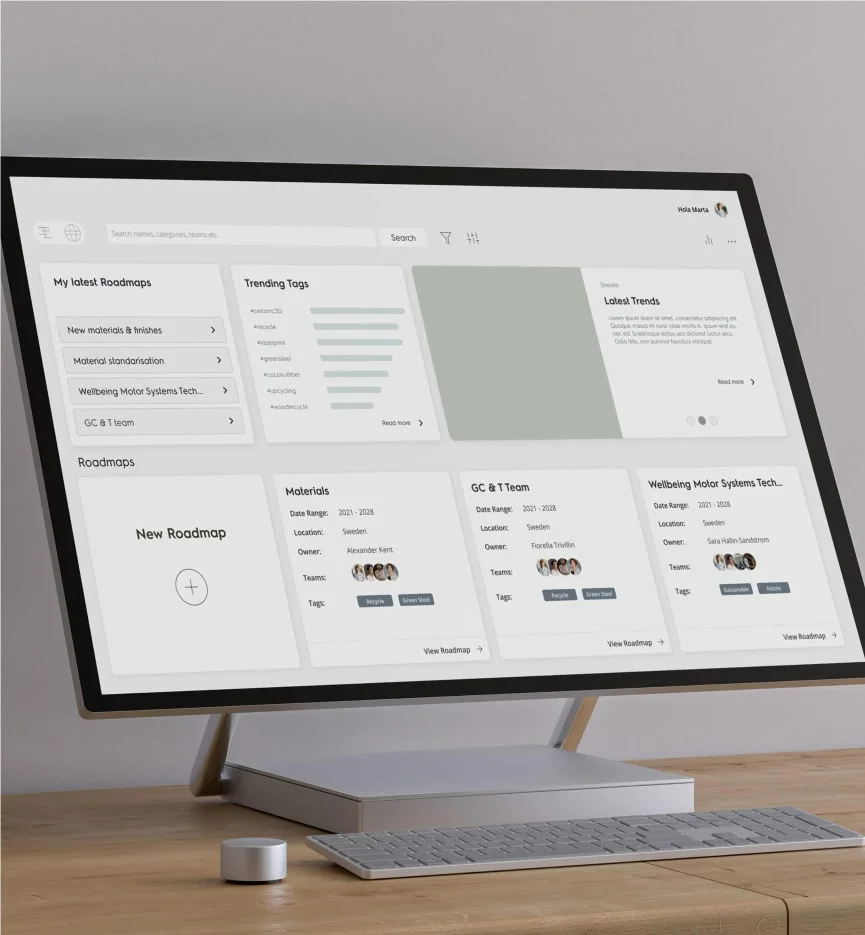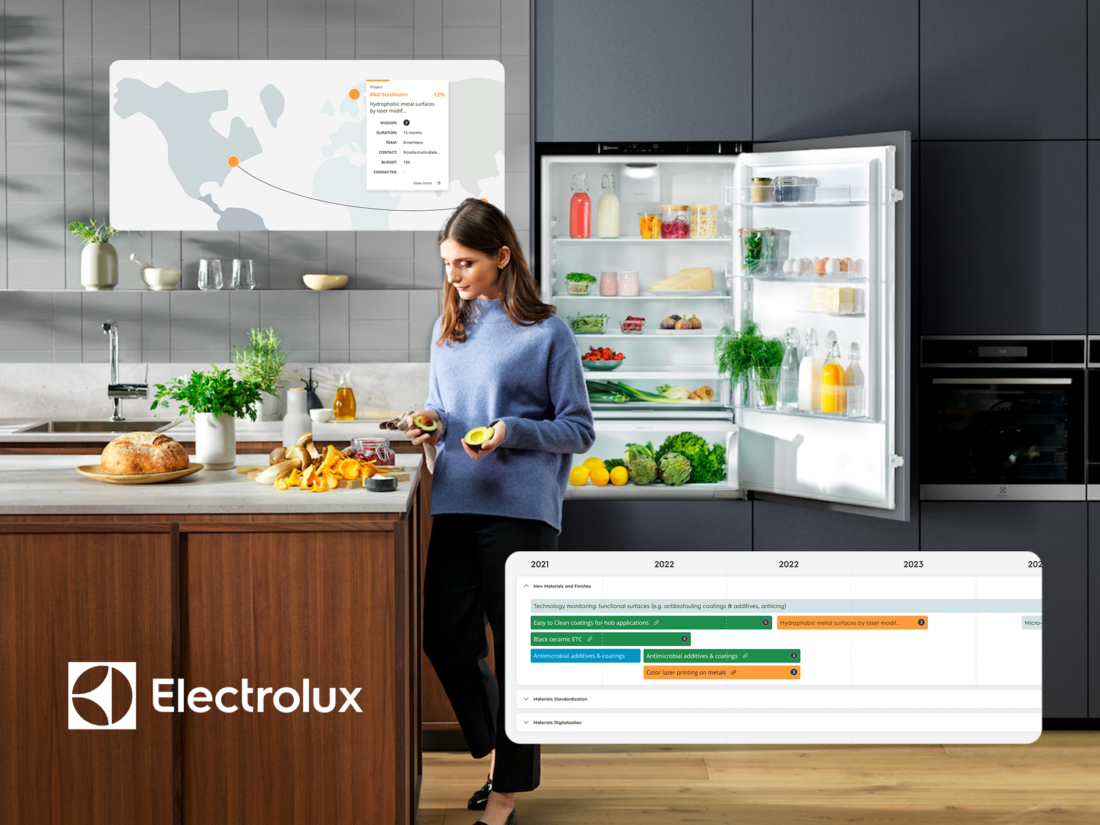Background
The Electrolux design team works with projects with dependencies across different geographies and functions. Effective planning, forecasting, and coordination are essential, and this requires data collection and report consolidation to be done continuously, across different departments worldwide.
Electrolux had the ambition to remove barriers for collaboration, reduce the time and efforts needed to maintain coordination, and enable the discoverability of experience in a globally distributed organisation. Liminal Discovery was engaged as the partner to support in finding the best way to deliver this.

Buy vs build analysis
The initial engagement for Liminal Discovery comprised a buy-vs-build analysis, including the task of verifying the findings of Electrolux internal efforts made to identify any available off-the-shelf products. As a direct result, the decision was made to move forward with a build scenario.
Business requirements specification
During the business requirement gathering, additional values like data visualisation supporting the discovery of opportunities for collaboration between initiatives, skills, and experience mapping in large globally distributed teams were discovered.
Solution
To overcome these challenges, we developed the ‘Collaborative Innovation Roadmap Tool.
This platform allows for the synchronisation of global roadmaps, enabling strategic decision-making and identification of subject matter experts (SMEs) worldwide.
It also supports the creation of cross-geographic teams for specific projects. The tool prioritises user experience (UX) and is continually refined through iterative prototyping to adapt to the evolving needs of diverse teams.
Prototype and MVP development
Three design sprints were conducted over eight weeks. After workshops with internal stakeholders, analysis of existing processes and tools being used, desktop research, and video interviews, a Figma prototype was built.
Project delivery plan
A technical architecture document together with the MVP design was then used to create a project estimation and delivery plan for building the tool, including organisational productivity opportunities, costs for development and ongoing maintenance.
Key Deliverables
- Buy vs. build analysis
- Development of business requirements specification
- Product definition. prototype development, user testing, MVP specification
- Technical design specification budget and delivery estimates

